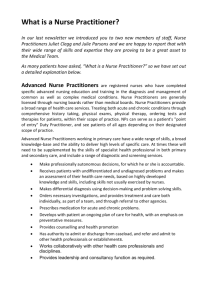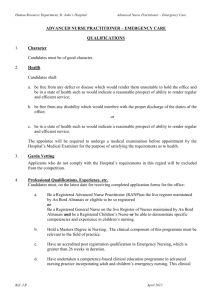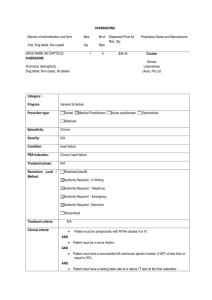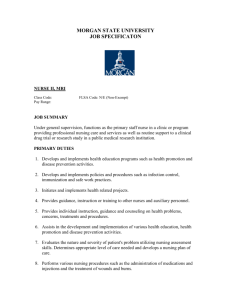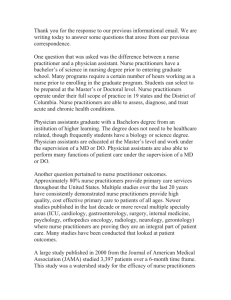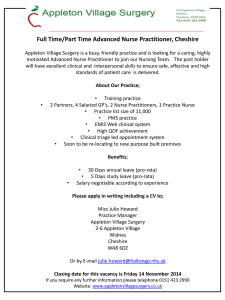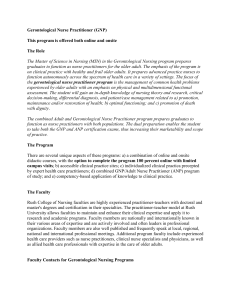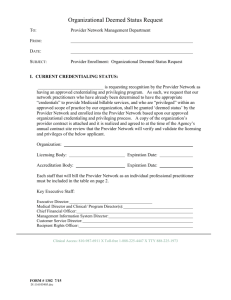Job Duties A Nursing Practitioner who is licensed and has the
advertisement
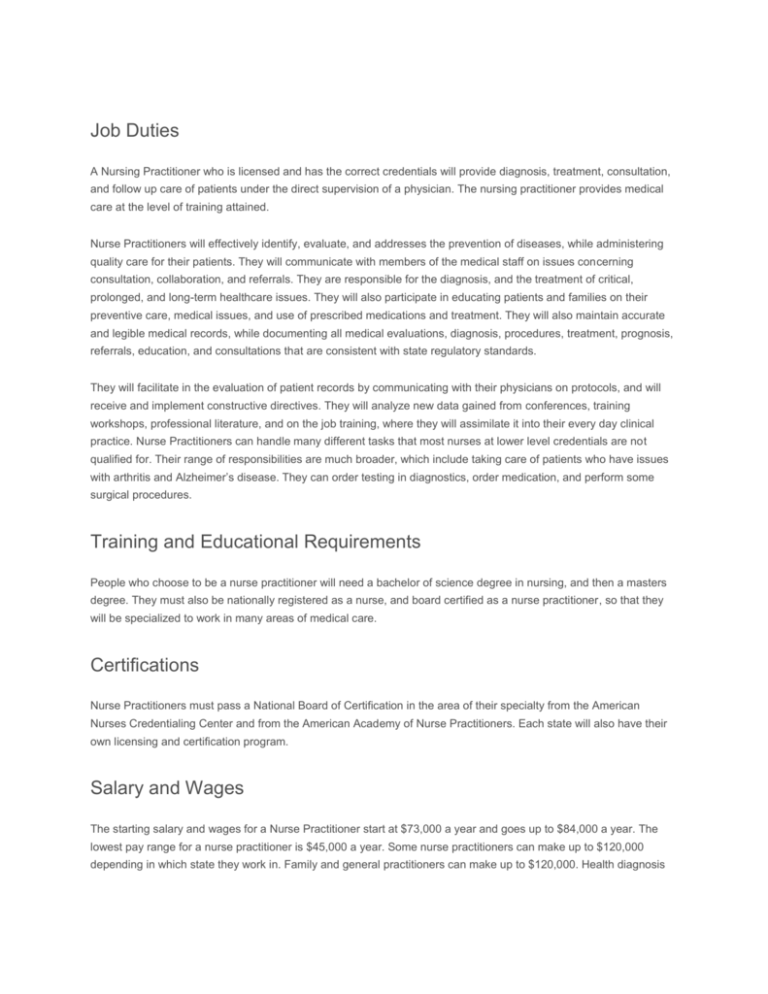
Job Duties A Nursing Practitioner who is licensed and has the correct credentials will provide diagnosis, treatment, consultation, and follow up care of patients under the direct supervision of a physician. The nursing practitioner provides medical care at the level of training attained. Nurse Practitioners will effectively identify, evaluate, and addresses the prevention of diseases, while administering quality care for their patients. They will communicate with members of the medical staff on issues concerning consultation, collaboration, and referrals. They are responsible for the diagnosis, and the treatment of critical, prolonged, and long-term healthcare issues. They will also participate in educating patients and families on their preventive care, medical issues, and use of prescribed medications and treatment. They will also maintain accurate and legible medical records, while documenting all medical evaluations, diagnosis, procedures, treatment, prognosis, referrals, education, and consultations that are consistent with state regulatory standards. They will facilitate in the evaluation of patient records by communicating with their physicians on protocols, and will receive and implement constructive directives. They will analyze new data gained from conferences, training workshops, professional literature, and on the job training, where they will assimilate it into their every day clinical practice. Nurse Practitioners can handle many different tasks that most nurses at lower level credentials are not qualified for. Their range of responsibilities are much broader, which include taking care of patients who have issues with arthritis and Alzheimer’s disease. They can order testing in diagnostics, order medication, and perform some surgical procedures. Training and Educational Requirements People who choose to be a nurse practitioner will need a bachelor of science degree in nursing, and then a masters degree. They must also be nationally registered as a nurse, and board certified as a nurse practitioner, so that they will be specialized to work in many areas of medical care. Certifications Nurse Practitioners must pass a National Board of Certification in the area of their specialty from the American Nurses Credentialing Center and from the American Academy of Nurse Practitioners. Each state will also have their own licensing and certification program. Salary and Wages The starting salary and wages for a Nurse Practitioner start at $73,000 a year and goes up to $84,000 a year. The lowest pay range for a nurse practitioner is $45,000 a year. Some nurse practitioners can make up to $120,000 depending in which state they work in. Family and general practitioners can make up to $120,000. Health diagnosis and treating nurse practitioners can make up to $78,000 a year, healthcare practitioners and technical occupations can make up to $51,000 a year, and healthcare practitioners in many other areas can make up to $45,000 a year.* *According to the BLS, http://www.bls.gov/oco/ Professional Associations: National Council License Examination for Registered Nurses American Nurses Credentialing Center American Academy of Nurse Practitioners National Certification Corporation American Psychiatric Nursing Association Board of Certification for Emergency Nursing Pediatric Nursing Certification Board National Certification Corporation for the Obstetric, Gynecologic, and Neonatal Nursing Specialties Oncology Nursing Certification Corporation For further details, contact Betty Ledet at 214-382-3813.
